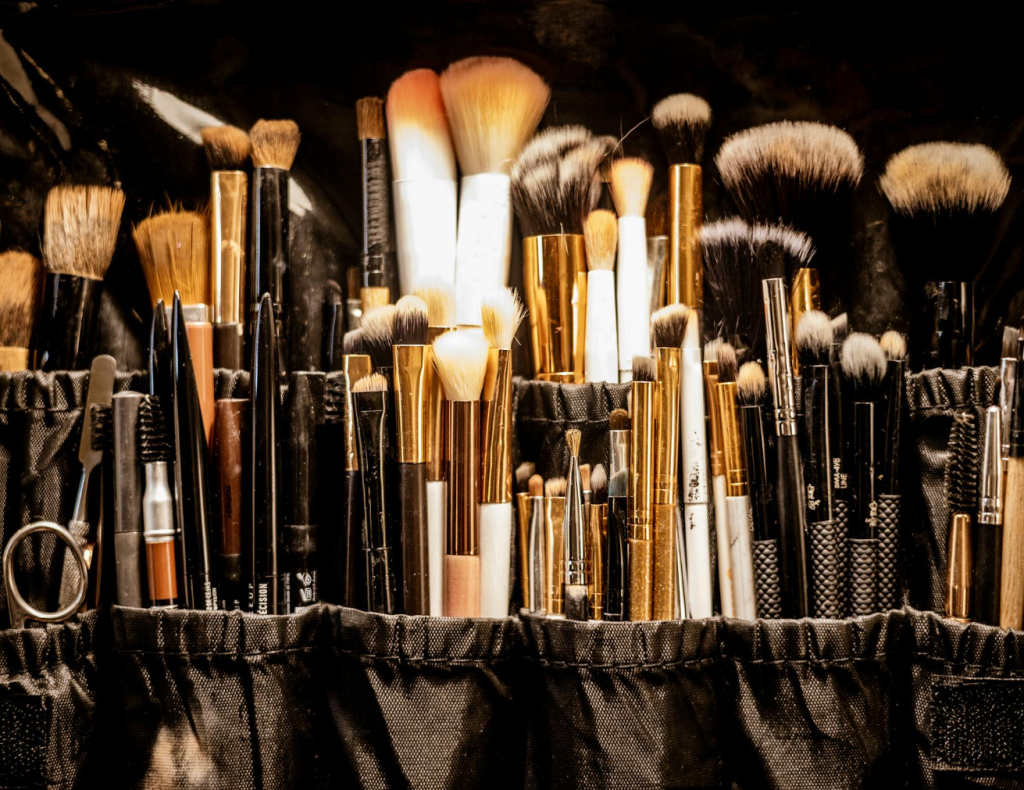Why Makeup Brush Care is Essential
Taking care of your makeup brushes might seem like a chore, but it’s crucial for both your skin and your makeup application. Have you ever noticed how a dirty brush can mess up that flawless look? It’s like trying to paint a masterpiece with a brush covered in dried paint!
Benefits of Clean Brushes
When your brushes are clean, they perform better. Imagine using a brush that’s gunked up with old foundation—it’ll just streak instead of blend. Clean brushes help your makeup go on smoothly and evenly, which is what we all want, right? Plus, clean brushes are less likely to harbor bacteria that can cause breakouts and skin irritations.
Consequences of Neglect
Neglecting brush care can lead to a host of issues, from poor makeup application to skin problems. A dirty brush can irritate your skin and spread germs, leading to acne and other skin conditions. You wouldn’t wear dirty clothes, so why use dirty brushes?
Types of Makeup Brushes
Not all brushes are created equal! Understanding the different types can help you take better care of them.
Natural vs. Synthetic Brushes
Natural brushes, made from animal hair, are great for powders because they pick up pigments well. However, synthetic brushes are fantastic for liquids and creams since they’re easier to clean and maintain. Knowing which type you have will inform how you clean and care for them.
Choosing the Right Brush
Investing in quality brushes is a game changer. Look for reputable brands that use good materials. A high-quality brush can last for years with proper care, while cheaper brushes may need to be replaced often.
Cleaning Your Brushes
Cleaning your brushes should be part of your regular routine. But when exactly should you do it?
When to Clean Your Brushes
As a general rule, you should clean your brushes at least once a week if you use them daily. If you’re using them for special occasions or sporadically, cleaning them after each use can help maintain their quality.
Step-by-Step Cleaning Process
Cleaning your brushes doesn’t have to be complicated. Here’s a simple process to follow:
Using Soap and Water
- Wet the bristles under lukewarm water, making sure to avoid the ferrule (the metal part) to prevent loosening the glue.
- Apply a small amount of gentle soap or baby shampoo to the bristles.
- Gently swirl the brush in the palm of your hand or a cleaning mat to work the soap into the bristles.
- Rinse thoroughly until the water runs clear.
- Reshape the bristles and lay the brushes flat to dry.
Using Brush Cleaners
If you’re short on time, a brush cleaner can be a quick alternative. Spray it onto a paper towel and gently wipe the bristles until they’re clean. Just remember, this shouldn’t replace regular deep cleaning!

Drying and Storing Your Brushes
Proper drying and storage are just as important as cleaning.
Proper Drying Techniques
Always lay your brushes flat to dry. Hanging them upright can cause water to seep into the ferrule, leading to damage.
Best Storage Practices
Store your brushes in a clean, dry place. A brush holder or a clean makeup bag works well. Keeping them upright helps maintain the shape of the bristles.
Tips for Maintaining Brush Longevity
Want your brushes to last? Here are some practical tips:
Regular Care Tips
Avoid using your brushes for products they weren’t designed for. For instance, using a powder brush for cream blush can ruin its bristles over time.
Signs of Brush Wear and Tear
Keep an eye out for frayed bristles or loss of shape. If your brush feels scratchy or isn’t applying makeup evenly, it might be time for a replacement.
Conclusion
Caring for your makeup brushes is essential for achieving that flawless look while keeping your skin healthy. Regular cleaning, proper drying, and good storage can extend the life of your brushes and improve your makeup game. So, take a little time each week to pamper your tools—they’ll thank you for it!
FAQs
1. How often should I clean my makeup brushes?
It’s best to clean your brushes at least once a week for daily use.
2. Can I use regular soap to clean my brushes?
Yes, gentle soap or baby shampoo works well for cleaning brushes.
3. What’s the best way to dry my brushes?
Lay them flat on a clean towel to dry. Avoid hanging them upright.
4. How can I tell if my brush needs to be replaced?
If the bristles are frayed or the brush feels scratchy, it’s time for a new one.
5. Are synthetic brushes better than natural brushes?
It depends on your preferences! Synthetic brushes are easier to clean, while natural brushes are great for powder products.

